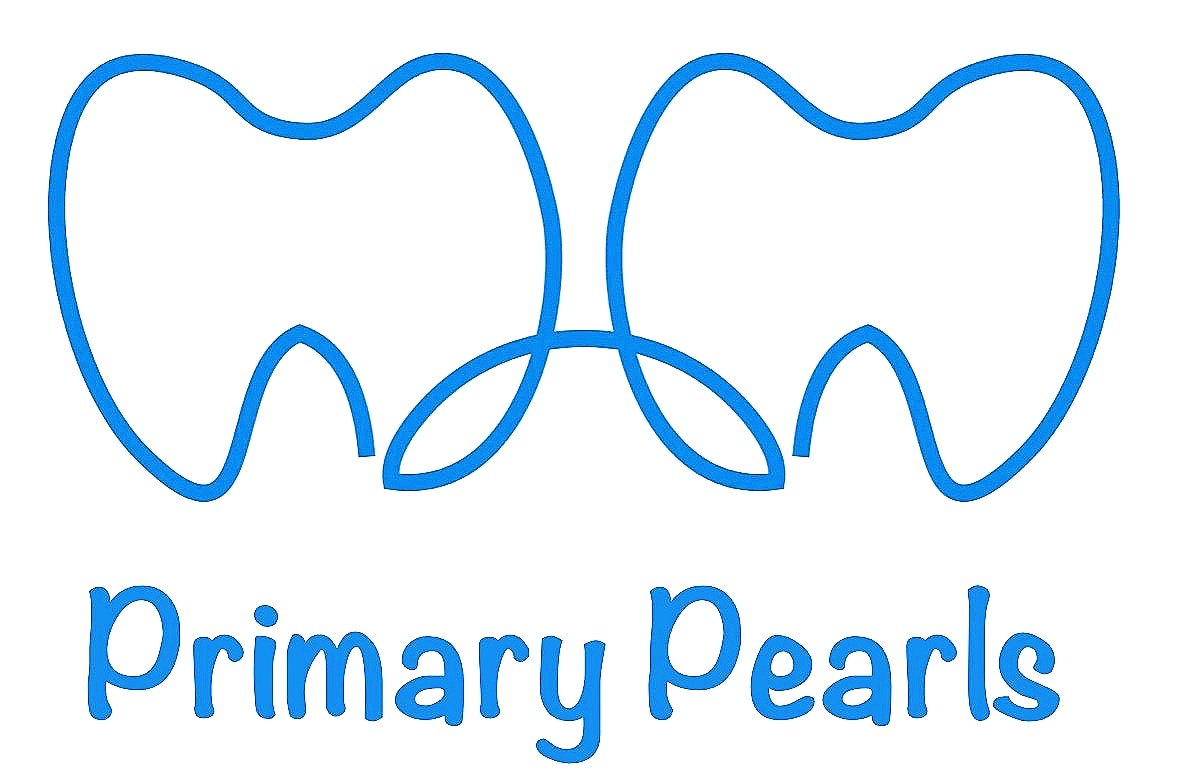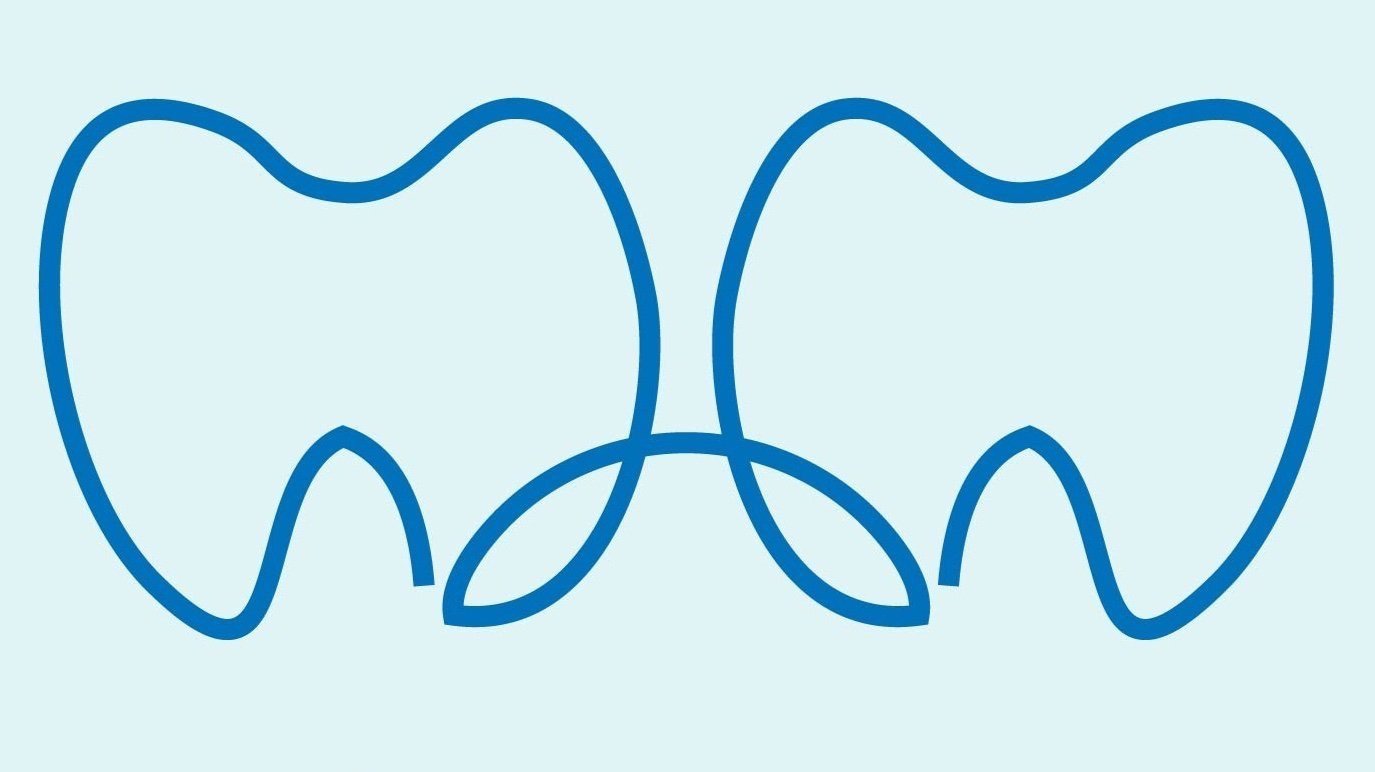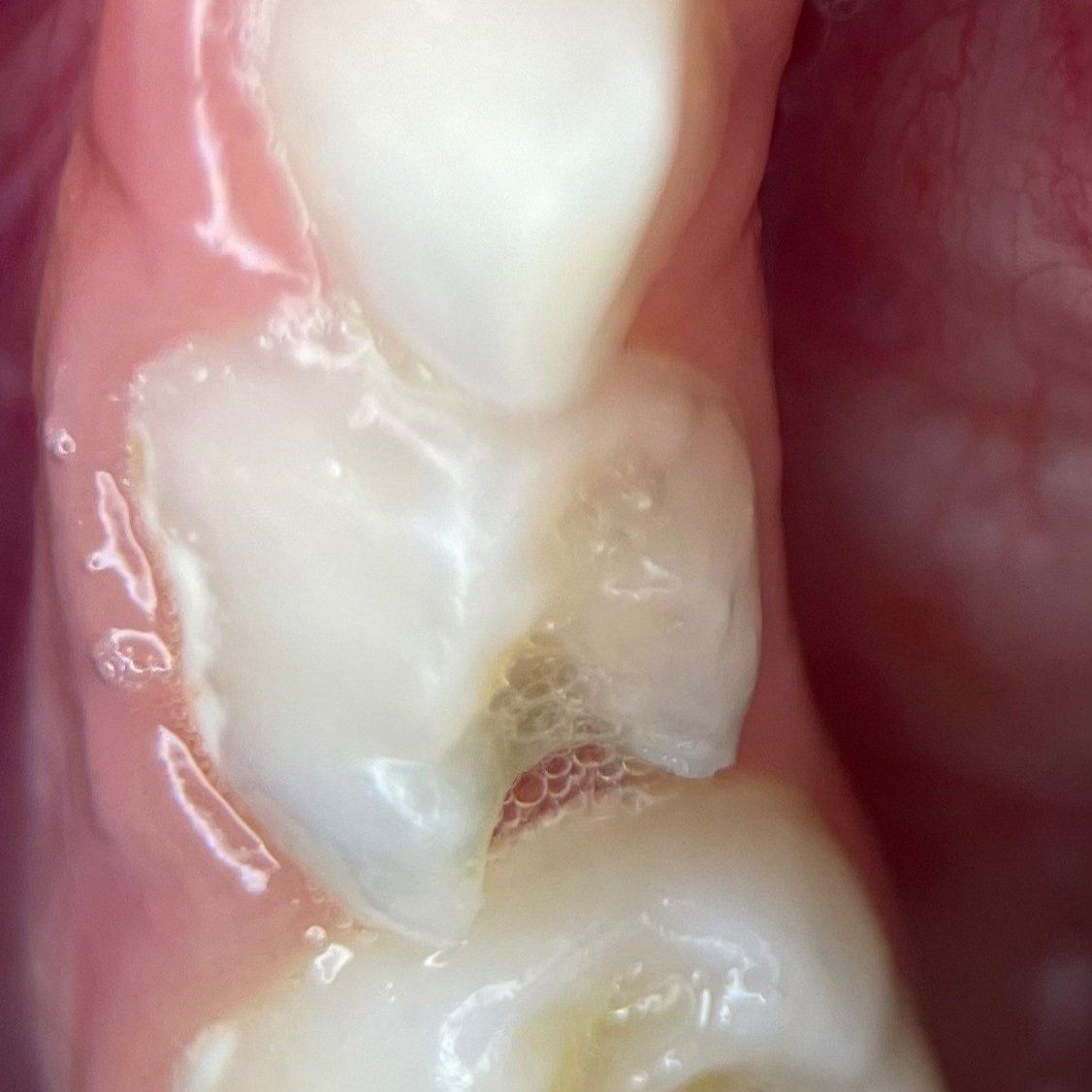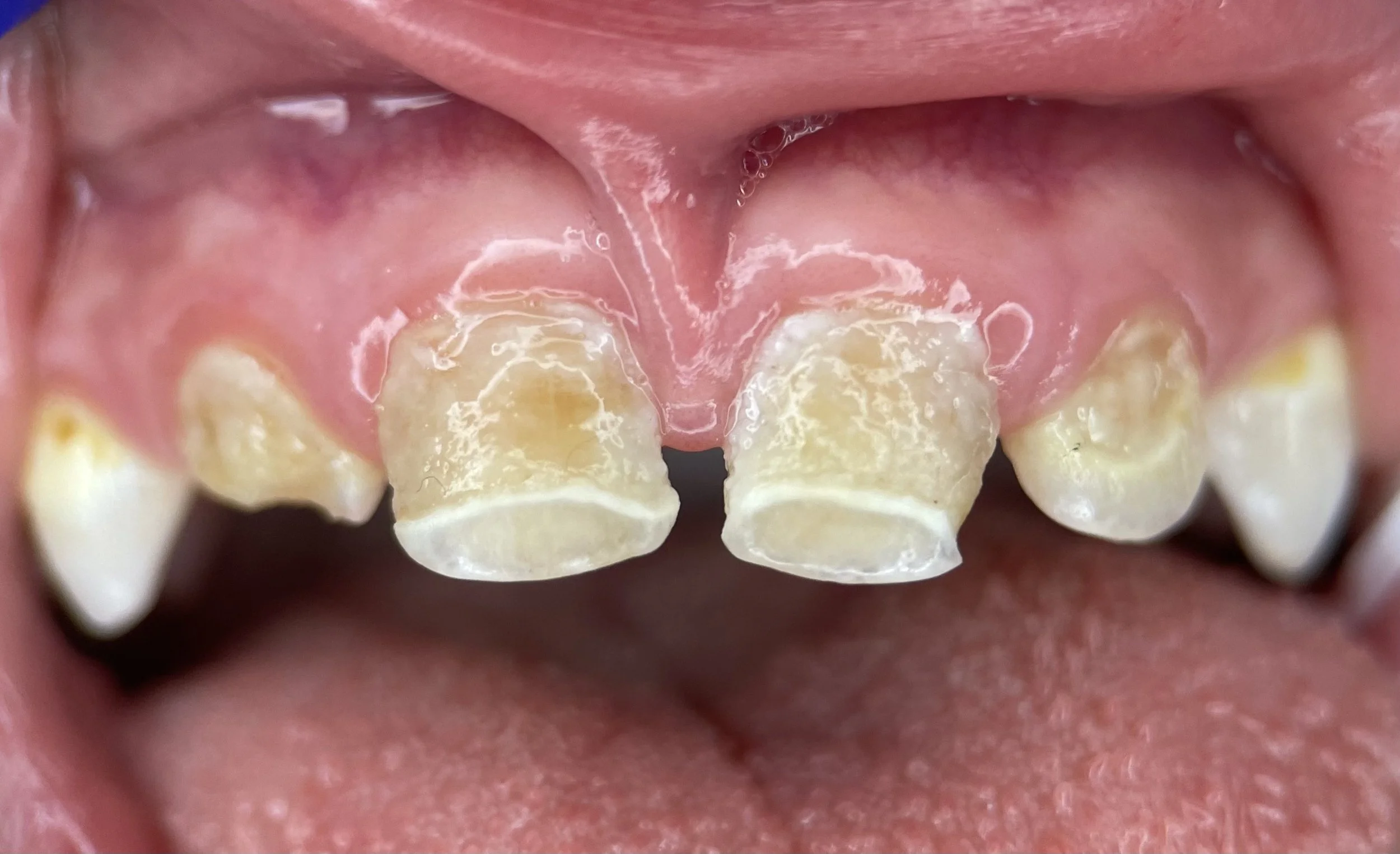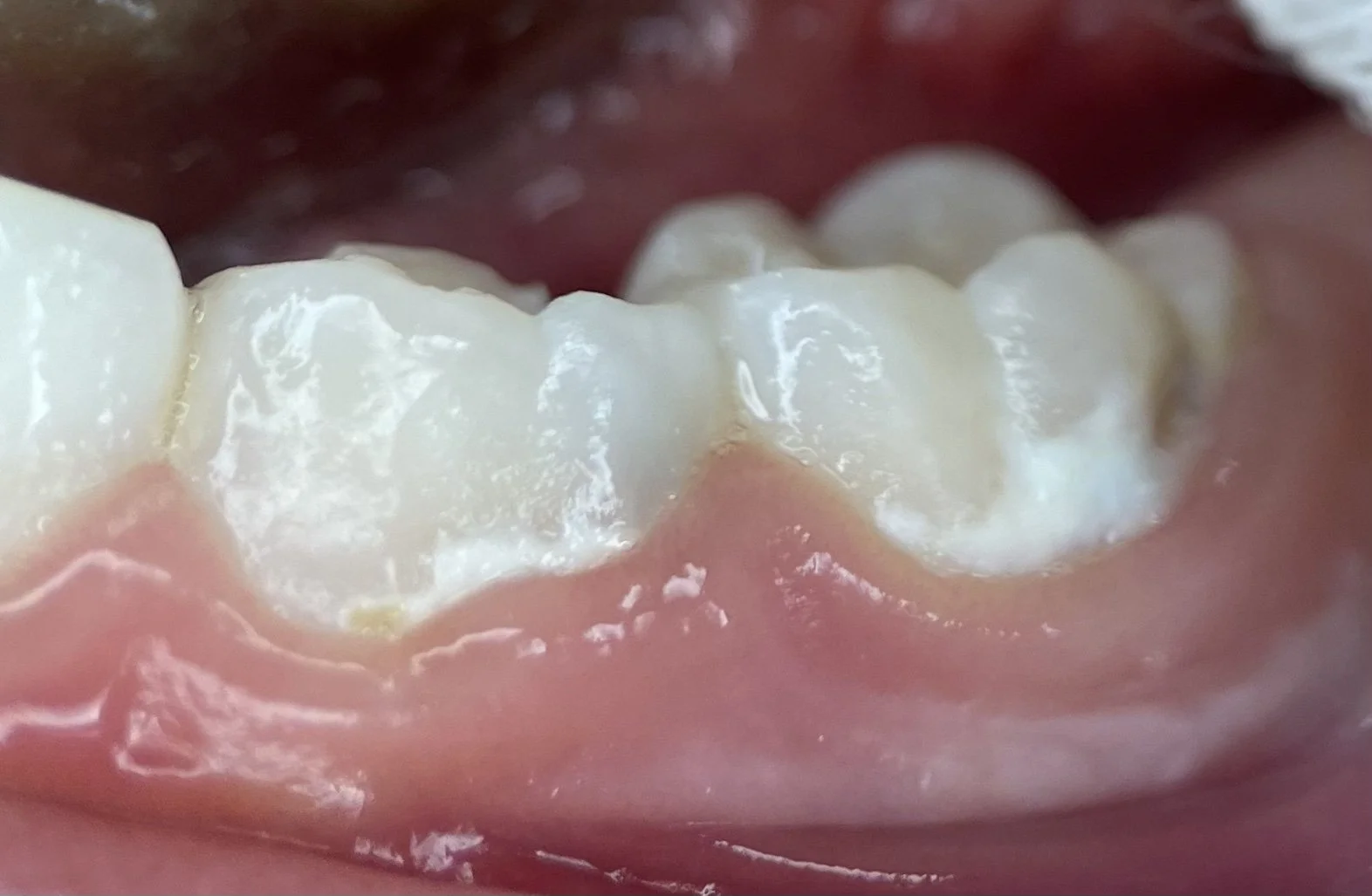How Your Child’s Diet Affects Their Teeth
Most people know that sugar is bad for the teeth. But how does it work? Read below to find out?
But first, How do cavities form?
Three things are needed for a dental cavity to develop:
Dental Plaque
A food source - sugar
Bacteria
The bacteria in your child’s mouth reside on the plaque on the teeth. If the bacteria are given sugar, they convert the sugar to acid, which over time can weaken and create a hole in the tooth (i.e. a cavity).
Cavity developed between the teeth from frequent sugared-beverage intake.
So How Can I Prevent Cavities?
If you remove any one of the above things, theoretically your child should not get a cavity. By brushing the teeth twice daily, you will remove some of the cavity-causing bacteria and most of the plaque.
So by brushing alone, I can prevent cavities?
Unfortunately, it’s impossible to eliminate all the cavity-causing bacteria from your child’s mouth by brushing the teeth. Some bacteria are good for your child’s body, and if you eliminated it all, it could be harmful to your child. Researchers have tried to create antimicrobials that target the cavity-cause bacteria only, but have not been successful.
The good news is that as you brush your child’s teeth, you will remove most of the dental plaque where the bacteria resides. However, there are some anatomical considerations (i.e. deep grooves or defects) that can prevent you from fully removing the plaque from your child’s teeth. That’s why we recommended twice daily brushing for two minutes - to give you the best chance at removing the bacteria of plaque from your child’s teeth.
Brushing the teeth twice daily is only one half of the puzzle. The diet is the second half.
How can you optimize your child’s diet to limit cavities?
We’re mostly worried about sugar, and it’s not the amount of sugar that matters, it’s the frequency and consistency of sugar intake.
If you limit the frequency of sugar, the teeth have a chance to repair any acid damage.
Drinking sugared beverages throughout the day, eating sticky candy, or consuming carb-rich snacks are very bad for the teeth. As the bacteria in your child’s mouth constantly convert that sugar to acid, you’re basically bathing the teeth in acid.
But isn’t it hard to minimize sugar in my child’s diet?
Yes! The modern diet is loaded with sugar and company’s know how to market to your children. You’ll find your kids’ favorite cartoons, movies, and toys marketed on all sorts of processed and sugar laden foods.
We’ve found that the easiest way to keep these foods out of your child’s diet is to simply not buy them. If you keep them out of the house, the temptation to give them (and your child’s desire to want them) will be lessened.
If you want to buy something sugary, keep it snack-sized or single serve, so that once your child is done with it, it’s out of the house.
Cavities on the front teeth from sippy cups and bottles of juice throughout the day
Do your best, and remember some foods can be misleading.
Be aware of “healthy” snacks that are sticky and high in sugar. It’s better to eat fresh fruit. Things like dried fruit and fruit leathers can be very sticky and full of added or concentrated sugars.
Crackers may not seem like a sugary snack, but they are broken down into sugars by the saliva and get easily stuck in the grooves and in between the teeth. Limit these if possible. When your child does have crackers, only allow water as an accompanying drink.
If your child takes a gummy vitamin, have them take it in the morning with a meal. Do not give it before bedtime.
Cavities forming on the front surface of the teeth from nightly “gummy vitamins”.
Are there any simple diet rules I can follow?
This is what we tell parents. Feel free to print and put on your fridge as a reminder!
Diet Recommendations:
Drink only water throughout the day.
Do not buy or keep sugared beverages in the house
Unless advice by pediatrician during times of illness
If you give juice, limit to 4 ounces per day and in one sitting
“Watered-down” juice is just as bad as regular juice for the teeth
Eat healthy, non-carb-rich snacks when possible
Cheeses, nuts, popcorn, fresh fruit and veggies
Limit to one carb snack/day (crackers, chips, etc.), preferably mid-day.
Avoid gummy, sticky snacks
Limit sugar to mealtimes and special occasions.
Only water after brushing your child’s teeth at night.
No more food or other beverages, unless you brush the teeth again.
If your child still has a bottle in bed, only water in the bottle at night once they have teeth.
THAT’S IT… Read the blog for more information!
